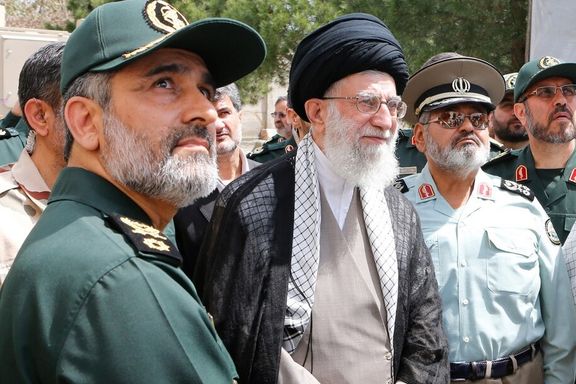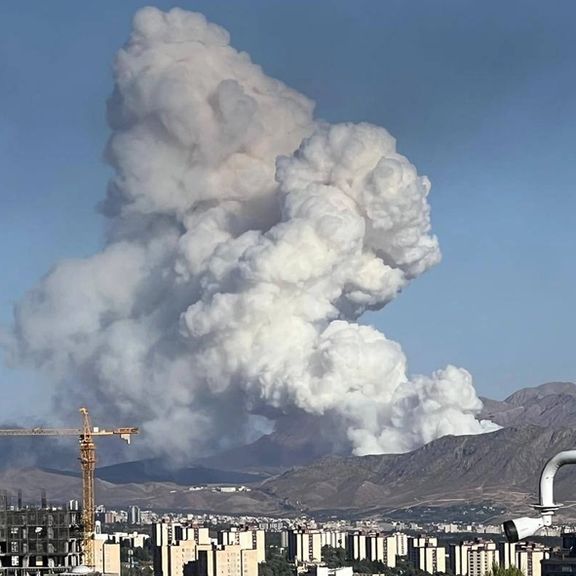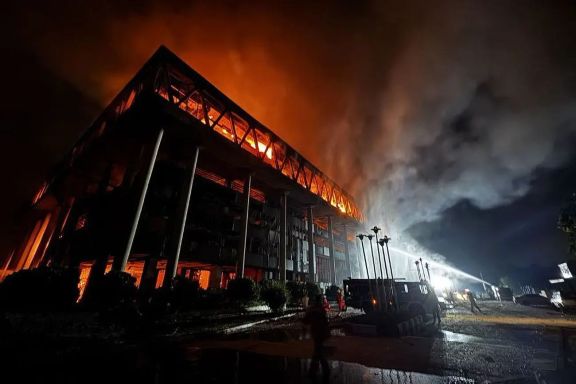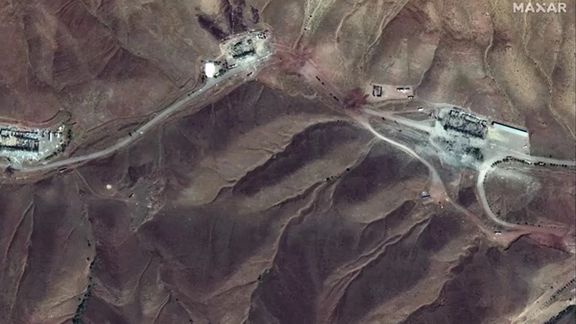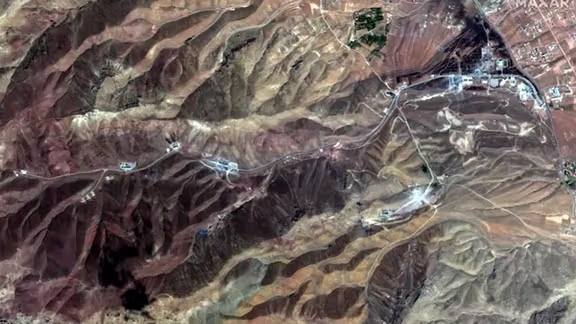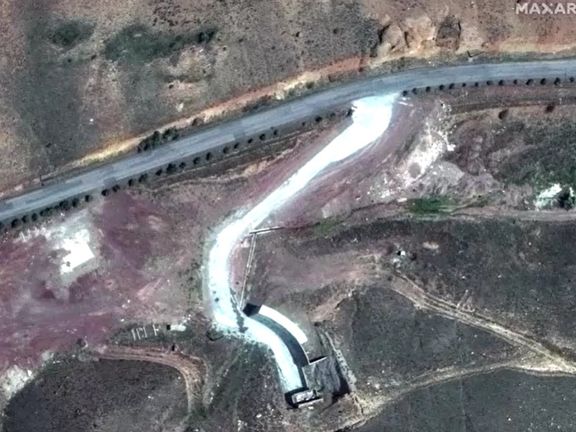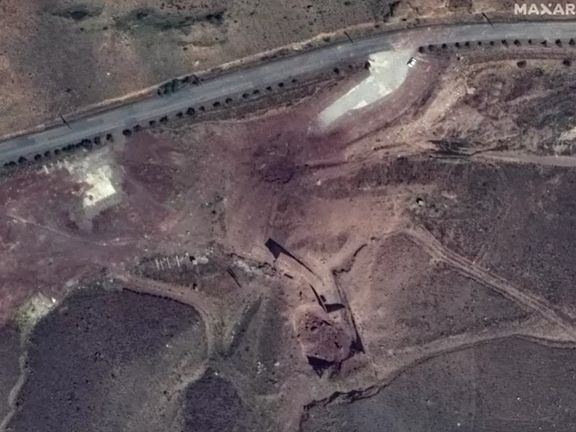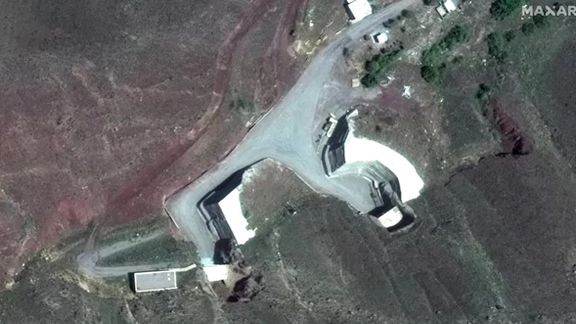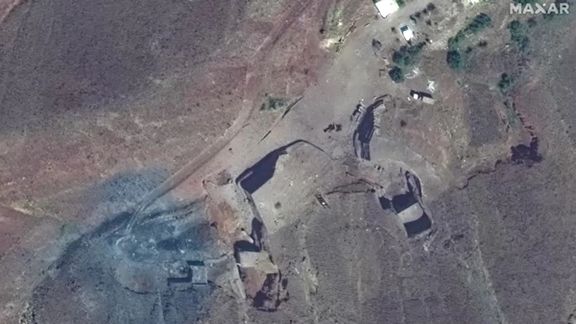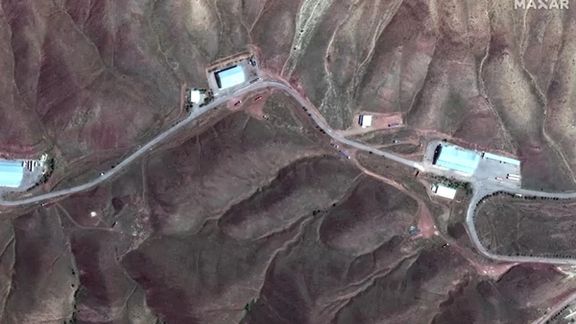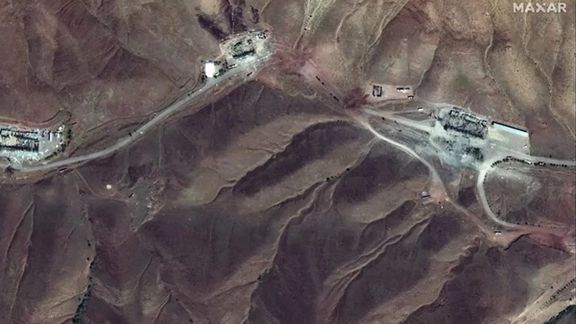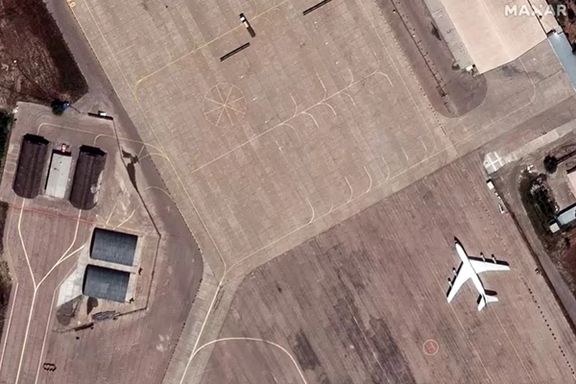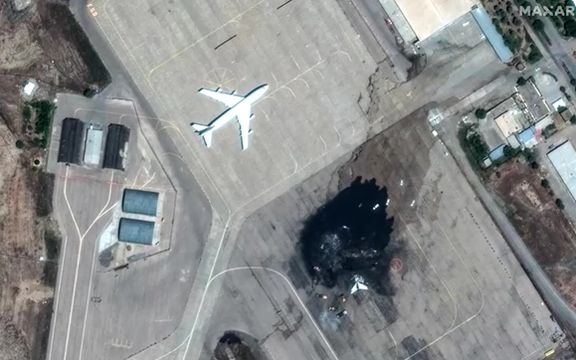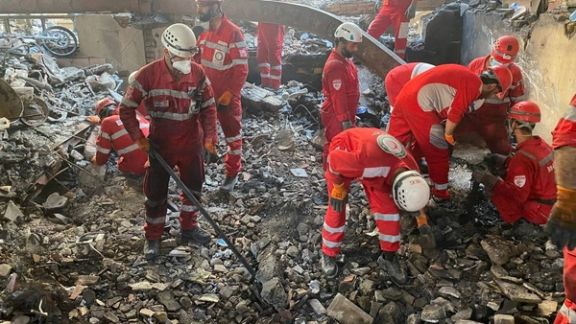Since Israeli strikes began on June 13, Khamenei has appeared diminished: a man seated under dim lights, speaking slowly beneath a loosely worn black turban, behind him a photo of Ayatollah Ruhollah Khomeini clumsily clipped to a curtain.
His words aim to project resolve. But his faltering speech and visible frailty suggest something closer to strain.
In this setting, it is hard to reconcile the figure onscreen with the one who just days ago promised “an imminent conquest” and warned that “life will definitely become bitter for the Zionists.”
From defiance to disconnect
That gap—between rhetoric and reality—mirrors a broader disconnect.
While his social media account issues bold threats and AI-generated images of missile strikes, the scenes unfolding in Iranian cities tell a more uncertain story: smoke over Tehran, civilians fleeing, supplies dwindling, and a propaganda machine scrambling after its own headquarters was reduced to rubble.
Very few know the Supreme Leader’s location.
As of June 17, officials have been instructed not to use electronic devices to avoid detection. Some believe Khamenei has already been moved—perhaps through tunnels to a station outside the capital, then to Mashhad, his stronghold.
On Tuesday, Trump claimed he knows Khamenei’s exact location but said he has not decided to kill him—“for now.”
Even among insiders, communication is limited. Those managing his online posts may be working from past speeches or assumptions, unable to consult him directly.
“The Islamic Republic’s Armed Forces will deal heavy blows to the evil Zionist enemy,” read a June 14 post, as drone strikes and salvos filled Iranian skies.
A nation fractured, a reckoning in sight
But for many Iranians—whatever their politics—these slogans ring hollow.
The violence has not unified the country. Instead, it has laid bare deep divisions. Online, ideological arguments rage.
In official media, unity is scripted. Reformist figures—including former Presidents Mohammad Khatami and Hassan Rouhani, and ex-Majles Speaker Mehdi Karroubi—have been pressured into voicing support.
Yet even some longtime critics of the Islamic Republic are emotionally torn. Patriotism runs deep, and the sight of foreign attacks on Iranian cities—especially when cheered abroad—has stirred feelings of alienation.
Many who despise Khamenei feel repulsed by those who appear to welcome the war.
On June 13, Khamenei’s account wrote, “The Zionist regime will not escape safely from the heinous crime they’ve committed,” making no distinction between military and civilian targets.
Some fear Israeli responses may blur the same lines.
Phone calls between Tehranis and relatives abroad oscillate between cautious hope and grim resignation. Some believe this crisis may trigger change. Others, like London-based journalist Amir Soltanzadeh, lament the world's indifference.
“Iran came under military attack, Trump ordered the evacuation of Tehran, and yet no one in the world protested,” he posted on X. “There were no demonstrations, not a single line written in Arab or Western media. That’s how hated the Islamic Republic is.”
But many Iranians don’t experience that hatred in the abstract. They live its consequences—trapped between a regime that claims to speak for them and a world that often struggles to see them at all.
